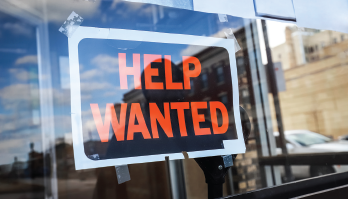There are very few days that go by now when a new challenge doesn’t present itself. This month, our department hosted Festivus and the Airing of Grievances. For those of you who aren’t Seinfeld fans, Festivus occurs on Dec. 23, is noncommercial, and includes a dinner, a plain aluminum Festivus pole, practices such as “The Airing of Grievances” and “Feats of Strength,” and calling common daily events “Festivus miracles.” It’s as Seinfeld character George Constanza’s father exclaims, “Festivus, for the rest of us!”
Explore This Issue
December 2021Replacing a department faculty meeting with a 1990s sitcom reference is probably an odd move, but it sure seemed like it was needed: Over the past month, the medical staff of my hospital has become increasingly frustrated over the challenges mounting in our clinical lives. My health system is historically a medical practice group of over 1,000 physicians and 13,000 employees. We are the only academic medical center in the state and have enjoyed the perks of a very low staff and physician turnover.
But that has changed this fall, and if it’s happening here, I know it must be happening everywhere else. Pick up a paper and the headlines are about the cost of gas and groceries. Anyone who has ordered furniture, is in the middle of a home improvement project, or has tried to buy a car knows a similar frustration. Labor and supply chain shortages are making life difficult for us all—and we are definitely feeling it in healthcare.

© Suzanne Tucker / shutterstock.com
Supply chain issues affect all that we do. From drugs to devices to masks, we’ve taken for granted that the things we need to take care of our patients will always be there. In Utah, citizens with old crutches were asked to donate them to their local hospital. The reason? An international shortage of aluminum had caused delays in shipments of crutches and walkers, and Utah hospitals collaborated to form a community drive to collect used ones.
The frustration felt when a favorite OR instrument is unavailable pales in comparison to the feeling when your favorite OR staff or room is no longer free. Labor shortages have had an even bigger impact than supply chain shortages and have affected every facility, from large university groups to small physician-owned practices. A survey of 1,000 healthcare workers found that 18% of them had quit their jobs since February 2020. Among those who kept their jobs, 31% had considered leaving at some point. From a 30,000-foot view, the impact of labor shortages has caused some health systems to pause nonemergency surgeries or temporarily close facilities.
But even if your local hospital has been able to keep its operating rooms open, there’s a good chance they aren’t running quite as well as they used to. A CDC report this fall found that healthcare-associated infections increased significantly in 2020 after years of steady decline. Anecdotally, the loss of staff has made nursing and OR staff subspecialization nearly impossible to administer. As a result, your favorite tech who knows all your surgical instruments is now replaced by a comparatively inexperienced tech who has to cover an ortho case on Monday, a craniotomy on Tuesday, and a lap chole on Thursday. I would like to think our quality hasn’t suffered, but it sure has taken more effort on our part to make sure each patient encounter is a success.
And to make life in the OR even more difficult, staffing shortages have now impacted the anesthesia workforce. Even before the pandemic, anesthesia providers were in high demand. In 2019, 56% of all anesthesiologists were over the age of 55 and 80% over age 45. The pandemic has brought about a host of additional stressors, including managing COVID-19 patients in the unit, COVID-19 contraction risk from intubation, and the work of taking care of increasingly sick and complex patients. This has contributed to staff burnout, early retirements, and increased staff turnover. CRNAs are in high demand as well, and they are more apt to do travel work as hospitals bid against each other to fill their vacancies and keep their operating rooms open. Locally, this has resulted in us being unable to use all our operating rooms; our surgeons have to scramble for any available OR time.
It remains a challenging time to be a physician, but I’m hopeful we’ll see the light sometime soon. The department airing of the grievances wasn’t so bad. We all know the challenges we face are similar to what the world is facing. It will be up to us to meet that challenge, and I have no doubt we will.
Thanks for reading, and I look forward to talking next month.
—Alex